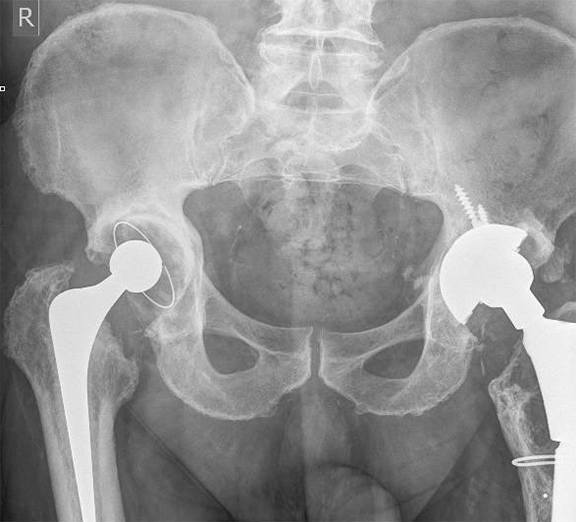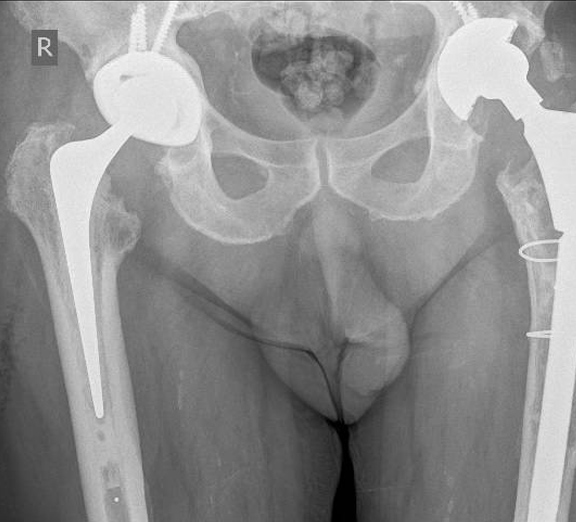Revision Hip Surgery
Persistent, worsening pain in a hip replacement is often a sign that it is failing. It is important to determine why this is happening. The four most common causes for failure of a hip replacement are that it has loosened from the bone, an infection has developed, the hip is unstable and has begun to dislocate or a periprosthetic fracture has occured. It is vitally important to investigate the cause of failure; this often includes blood tests, X-rays, a bone scan and fluid samples from the joint.
Performing reconstruction surgery to recreate a well-functioning hip replacement is technically demanding and requires expertise from a surgeon who regularly performs these operations. I regularly perform this surgery and use advanced surgical techniques and specialised bone restoration methods.
It can take up to a year to fully recover after revision total hip replacement surgery. It is important to work with your physio to regain your range of motion, strength, function and stability after surgery.

Cause of Failure
Procedures:
A hip replacement can be cemented or uncemented. In a cemented total hip replacement, bone cement is used to fix the total hip replacement to the bone, in an uncemented total hip replacement the host bone grows onto the implant. If this interface between the bone and the cement or the bone and the implant (in an uncemented hip) fails then the implant will loosen and will result in progressive pain. Usually loosening occurs many years after surgery. If it occurs early on it is often due to a technical problem during the implantation surgery.


Another cause of loosening can be a wearing out of the plastic insert that sits within the socket and articulates with the metal ball on the end of the femoral stem. These wear particles that are generated can cause quite extensive bone loss around the implant and this significantly increases the complexity of the surgery.
It is therefore important that your surgeon has a range of options available to him to reconstruct your hip after a failed hip replacement. This may include advanced surgical approaches, use of complex revision implants including custom made implants, use of bone graft or trabecular metal implants to reconstitute lost bone.
If you experience recurrent dislocations from a hip replacement it can be incredible debilitating and often surgery is required to correct the cause of the dislocation. There are many reasons for a hip to start dislocating including; trauma, wear, loosening, component malpositioning and muscle weakness. If revision surgery is to be contemplated, it is vitally important to attain the correct diagnosis of what is wrong with the original hip replacement. I am experienced in treating patients with these problems, I use complex revision implants including custom made implants, use of bone graft or trabecular metal implants to reconstitute lost bone to create a hip replacement that is stable and will function well in the future.
An infection in a joint replacement is a devastating complication for both patient and surgeon. There are a number of tests that will need to be performed prior to surgery. It is vitally important to isolate the causative organism so that targeted antibiotics can be used following the revision surgery. There are a variety of surgical options available to treat the infection and these depend on the results of the various investigations, examination findings, the type of infective organism and chronology of the infection. The rationale and treatment options will be explained to you during the clinic appointment.
